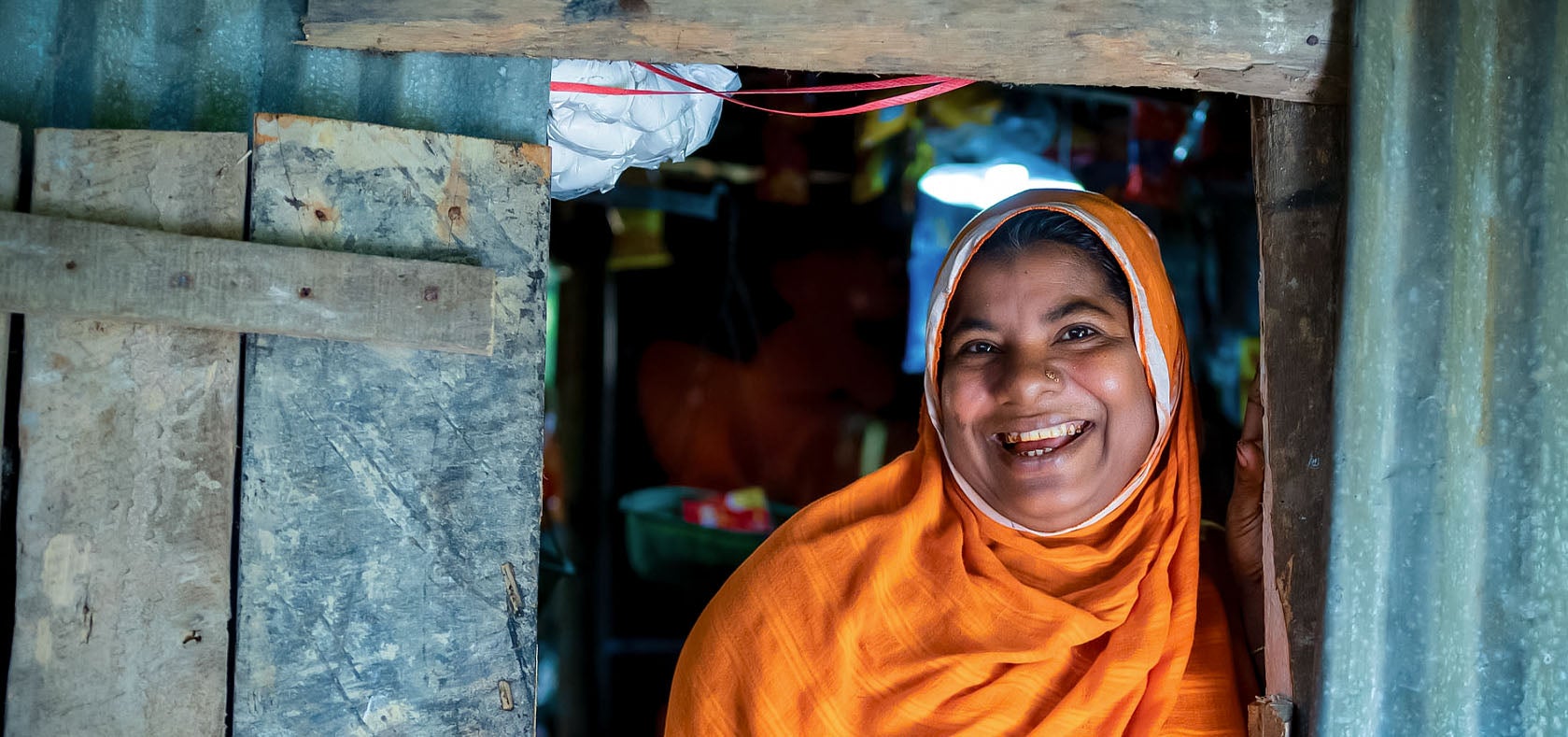A tale of women’s empowerment in Cox’s Bazar
Date:
Author: Magfuzur Rahman Shana

Living in Teknaf, where women have limited access to basic services, information, education, and formal work and continue to have limited influence over decision-making, Hasina Begum has carved out a space for herself by establishing a small business.

I started a small grocery shop in our village. While the profits are still modest, the business has started to flourish, with many villagers starting to buy their groceries from my shop. My husband stands beside me, providing support to ensure the shop's seamless operation,” said Hasina Begum, a beneficiary of UN Women’s Multi-purpose Women’s Centre (MPWC) in Teknaf Cox’s Bazar, managed by Oxfam and supported by the Swedish International Development Cooperation Agency (Sida).
"I am thrilled as I can now financially support my family, ensuring my two daughters and my son can go to school. My goal is to raise them as well-educated and compassionate individuals for the future," shared Begum.
She was part of a cohort of 822 women who received financial assistance and planning support to develop their own businesses. Today, her monthly income is about 12,000-15,000 BDT (108-135 USD), which is helping her to run her household. With her newfound economic independence and confidence, Hasina successfully intervened to prevent child marriage in her community. She also facilitates awareness sessions addressing the issues of early marriage, dowry, and drug use. Begum has also shown her leadership, including by mobilizing her neighbours to demand the renovation of a community road.
Today, she is a well-respected figure within her community, with people actively seeking her advice.
“It was startling to realise that while we put so much effort and time into taking care of our families and loved ones, we often neglect our own well-being and personal growth. Oxfam’s leadership sessions became a turning point, giving me insights into my contribution to the household and my potential for self-development and learning — the project even provided me with the financial support I needed to kickstart my business,” she added.
Since 2018, UN Women has supported eight women’s centers, five in Rohingya camps and three in host communities. Ensuring a one-stop shop for multi-sectoral protection and empowerment services, MPWCs offer training on leadership, livelihoods, and life skills as well as psychosocial support, sexual and reproductive health services and case management and referrals related to gender-based violence, and childcare facilities for small children accompanying their mothers. The MPWCs provide a crucial safe space for women to socialize with each other and seek peer-to-peer support, and to learn about their rights and issues of importance to them.
In 2023, around 119,555 women and adolescent girls from the Rohingya and host communities received essential information including on women’s rights, basic literacy, and numeracy, as well as family planning and emergency health aid, at UN Women supported MPWCs; 4,721 received livelihood training and improved their leadership capacities and confidence; while 510 women gained a second chance in education.
“Supporting women to learn and to earn is fundamental: it enables women to stand up for themselves, and changes lives, builds hope and resilience of whole communities” stated Silja Rajander, Head of UN Women’s Sub-Office in Cox's Bazar.